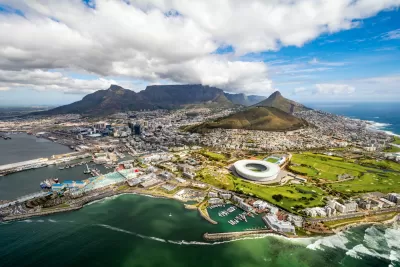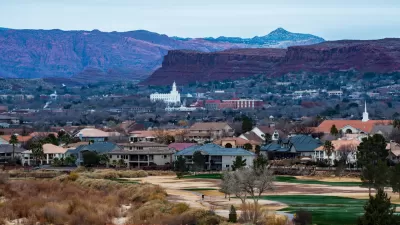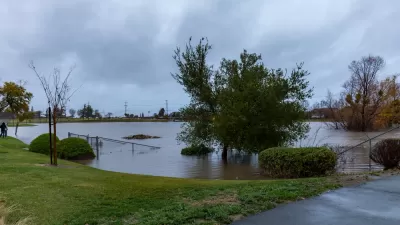As the world’s water supply becomes more threatened, the wealthiest people are exacerbating the crisis through non-essential uses while the poor are the first to lose access to water.

A study of water use in Cape Town, South Africa found that “ the richest people used 50 times more water than the poorest,” driving the city’s water crisis, which reached an extreme in 2018 with the Day Zero crisis. In Cape Town, the study’s authors concluded that 14 percent of the city’s population used 51 percent of water, writes Damian Carrington in The Guardian.
The researchers say other major world cities face a similar challenge. “In March, a report by the Global Commission on the Economics of Water concluded that the world faces an imminent water crisis, with demand expected to outstrip supply by 40% by 2030.”
The report predicts that the gap in access to water between the rich and the poor will continue to widen as water scarcity deepens. “The scientists said failing to account for social inequality in a water crisis often led to technocratic solutions that simply reproduced the uneven and unsustainable water use patterns that contributed to the water crisis in the first place.”
FULL STORY: Swimming pools of the rich driving city water crises, study says

Maui's Vacation Rental Debate Turns Ugly
Verbal attacks, misinformation campaigns and fistfights plague a high-stakes debate to convert thousands of vacation rentals into long-term housing.

Planetizen Federal Action Tracker
A weekly monitor of how Trump’s orders and actions are impacting planners and planning in America.

San Francisco Suspends Traffic Calming Amidst Record Deaths
Citing “a challenging fiscal landscape,” the city will cease the program on the heels of 42 traffic deaths, including 24 pedestrians.

Defunct Pittsburgh Power Plant to Become Residential Tower
A decommissioned steam heat plant will be redeveloped into almost 100 affordable housing units.

Trump Prompts Restructuring of Transportation Research Board in “Unprecedented Overreach”
The TRB has eliminated more than half of its committees including those focused on climate, equity, and cities.

Amtrak Rolls Out New Orleans to Alabama “Mardi Gras” Train
The new service will operate morning and evening departures between Mobile and New Orleans.
Urban Design for Planners 1: Software Tools
This six-course series explores essential urban design concepts using open source software and equips planners with the tools they need to participate fully in the urban design process.
Planning for Universal Design
Learn the tools for implementing Universal Design in planning regulations.
Heyer Gruel & Associates PA
JM Goldson LLC
Custer County Colorado
City of Camden Redevelopment Agency
City of Astoria
Transportation Research & Education Center (TREC) at Portland State University
Jefferson Parish Government
Camden Redevelopment Agency
City of Claremont





























